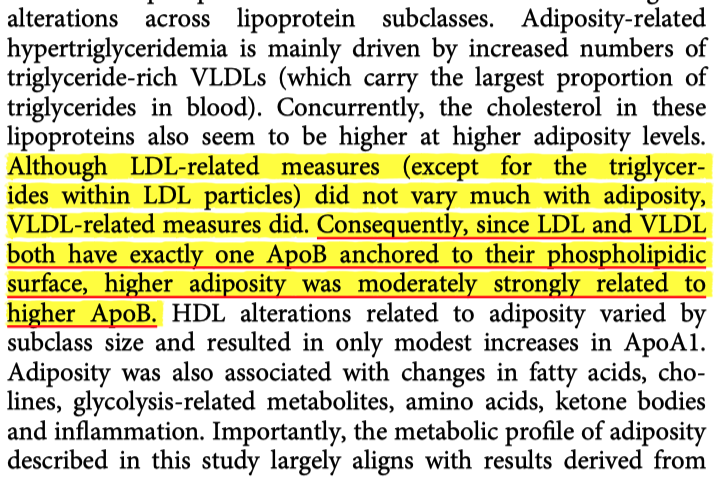
🧵1/8 Here's an easy thread for reference on our current papers. 👇👇👇
🔖 Bookmark this!
We cover:
- High #LDL on #lowcarb/#keto
- Lean Mass Hyper-responders (#LMHR)
- The Lipid Energy Model (#LEM)
- And, ofc, our #LMHRstudy underway right now
🔖 Bookmark this!
We cover:
- High #LDL on #lowcarb/#keto
- Lean Mass Hyper-responders (#LMHR)
- The Lipid Energy Model (#LEM)
- And, ofc, our #LMHRstudy underway right now
2/8 The #LMHRpaper was our first describing the #LMHR phenotype
- #LDL #Cholesterol of 200 or higher
- #HDL #Cholesterol of 80 mg or higher
and
- #Triglycerides of 70 mg or lower
Which is actually common for lean, very folks on #lowcarb/#keto folks. doi.org/10.1093/cdn/nz…
- #LDL #Cholesterol of 200 or higher
- #HDL #Cholesterol of 80 mg or higher
and
- #Triglycerides of 70 mg or lower
Which is actually common for lean, very folks on #lowcarb/#keto folks. doi.org/10.1093/cdn/nz…
3/8 Our second paper brings a case report on a single #LMHR with extremely high #LDLc (~500 mg/dL) for 2.5 years, their eating patterns, and current CT angiography.
(⚠️Please note this is a single case report and should be considered anecdotal, ofc) doi.org/10.3389/fendo.…
(⚠️Please note this is a single case report and should be considered anecdotal, ofc) doi.org/10.3389/fendo.…
4/8 We also have a short (7min), yet highly illustrative video abstract on our case report.
5/8 Our third paper details the Lipid Energy Model (#LEM), a comprehensive hypothesis detailing *why* we believe #LDL #cholesterol rises substantially in the context of very #lowcarb, #keto diet.
doi.org/10.3390/metabo…
doi.org/10.3390/metabo…
6/8 We likewise have a short (5min) abstract for the Lipid Energy Model that's well worth your time to watch if you're interested in a high level overview.
7/8 Our fourth paper is my "first first author" where I detail my highly controlled three phase diet experiment, performed in duplicate. Myself and others apply principles of the #LEM in demonstrating an acute drop in #LDLc over-consuming saturated fat. doi.org/10.1097/MED.00…
8/8 Lastly, we have the #LMHRstudy now underway.
We're tracking plaque progression of #LMHRs in via CT angiograms.
The existing Lipid Hypothesis would predict emerging and rapid progression of vascular plaque. We'll have data soon. 📊
See LMHRstudy.com for details.
We're tracking plaque progression of #LMHRs in via CT angiograms.
The existing Lipid Hypothesis would predict emerging and rapid progression of vascular plaque. We'll have data soon. 📊
See LMHRstudy.com for details.
9/9 Addendum! Forgot to tag all the wonderful coauthors -- not the least of which being my good friend and collaborator, @nicknorwitz
In alpha by first name:
@AdrianSotoMota
Anatol Kontush
@bobkaplan
@davidludwigmd
@BudoffMd
@siobhan_huggins
Stefanos Parpos
@DoctorTro
In alpha by first name:
@AdrianSotoMota
Anatol Kontush
@bobkaplan
@davidludwigmd
@BudoffMd
@siobhan_huggins
Stefanos Parpos
@DoctorTro
• • •
Missing some Tweet in this thread? You can try to
force a refresh






